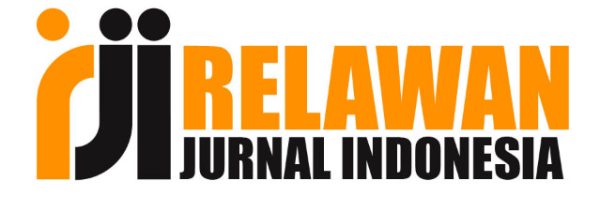Maqasid Al-Shari’ah and the Ethics of Artificial Intelligence
Contemporary Challenges
DOI:
https://doi.org/10.52100/jcms.v2i2.107Keywords:
artificial intelligence, maqasid al-shari’ah, Islamic ethics, purposefulnessAbstract
Technological advancements in the twenty-first century, invigorated by the exponential growth of artificial intelligence (AI) technology, have ushered in a new era that provides many of us with amenities and comforts that were hitherto unattainable. But behind this progressive rhetoric of neo-liberalism, capitalism, and post modernism, artificial Intelligence development has also sparked an increasingly ambiguous ethical future, especially at the level of privacy, manipulations and others. This article provides a concise analysis of the concept of Maqasid al-Shari’ah and its relevance to AI ethics. This paper attempts to investigate the ethical contemporary challenges posed by the advancement of AI from the perspective of Maqasid-al-Shari’ah and ethic-based approaches. In this study, the qualitative approach was used to clarify the importance of Maqasid Al-Shari’ah and the ethics of artificial intelligence in light of the ongoing contemporary challenges. The article contends that Artificial Intelligence poses weighty ethical challenges related to privacy, manipulation and others which are vital values in Maqasid Al-Shari’ah. The paper concludes that ethical considerations should be incorporated into the development and usage of Artificial Intelligence. The paper paves the way future attempts to analyse alternative ethical paradigms for Artificial intelligence in general, based on a comprehensive Islamic ethic-based approach founded within the context of maqasid which can represent a constructive contribution to the worldwide discourse on the ethics of Artificial Intelligence.References
Abd Aziz, A., Lokman, A. M., & Yusof, Z. M. (2011). “Information technology ethics: the conceptual model of constructs, actions and control measure”. International Journal on Computer Science and Engineering, 3(6), 2580-2588.
Abd al-Rahmane, T. (2006). Al-‘Amal al-Dini Wa-Tajdid al-‘Aql. 4th ed. Casablanca: al-Markaz al-Thaqafi al-‘Arabi.
Anggilia, M., Purnomo, J. H., & Hidayati, N. N. (2021). “Islamic Business Ethics: How to Apply it on Hikma Collection Group (HCG) Management at Pondok Pesantren Miftahul Hikmah Parengan Sub-District, Tuban District, East Java”. Journal of Sharia Economics, 3(2), 137-159.
Auda, J. (2022). Re-envisioning Islamic scholarship: Maqasid methodology as a new approach. Claritas Books.
Auda, J. (2014). Maqasid Al-Shariah: A Beginner's Guide. International Institute of Islamic Thought (IIIT).
Bostrom, N., & Yudkowsky, E. (2014). The ethics of artificial intelligence. Cambridge: Cambridge University Press.
Bryson, J. J. (2018). “Patiency is not a virtue: the design of intelligent systems and systems of ethics.” Ethics and Information Technology, 20(1), 15-26.
Bucar, E. M. (2018). Islamic virtue ethics. The Oxford handbook of virtues , 207-223.
Chen, A. (2019). “Inmates in Finland are training AI as part of prison labor.” The Verge, 28.
Al-Faki, M. (2014). “Islamic Ethics of Artificial Intelligence.” Journal of Islamic Economics, Banking and Finance, 10(1), 1-10.
Floridi L. (2014). The Fourth Revolution. How the Infosphere is Reshaping Human Reality, Oxford: Oxford University Press.
Jobin, A., Ienca, M., & Vayena, E. (2019). “The global landscape of AI ethics guidelines”. Nature Machine Intelligence , 1 (9), 389-399.
Hagendorff, T. (2020). “The ethics of AI ethics: An evaluation of guidelines”. Minds and Machines, 30(1), 99-120.
Hallaq, W. B. (2019). Reforming Modernity: Ethics and the New Human in the Philosophy of Abdurrahman Taha. Columbia University Press.
Hallaq, W. B., & Mohadi, M. (2022). “Al-Maqasid wa Tahadiyyat al-Hadatha,” Journal of Contemporary Maqasid Studies, 1(2), 105-130.
Hamed, M., Belyamani, M., Abduljawad, H., & Al-Barzinji, Z. (2022). “Maqasid Research Methodology Challenges: A Survey Study.” Journal of Contemporary Maqasid Studies, 1(2), 83–104.
Haneef, SSS (2006). Ethics and fiqh for daily life: An Islamic outline . International Islamic University Malaysia.
Hao, K. (2019). “China has started a grand experiment in AI education. It could reshape how the world learns.” MIT Technology Review, 123(1). 1-9
Hashi, A. A. (2011). “Islamic ethics: An outline of its principles and scope.” Revelation and Science , 1 (03).
Hofmann, B. (2013). “Ethical challenges with welfare technology: a review of the literature.” Science and engineering ethics , 19 (2), 389-406.
Gupta, A., Royer, A., Wright, C., Khan, F. A., Heath, V., Galinkin, E., ... & Butalid, R. (2021). “The State of AI Ethics Report” (January 2021). arXiv preprint arXiv:2105.09059.
Lin, P., Abney, K., & Jenkins, R. (Eds.). (2017). Robot ethics 2.0: From autonomous cars to artificial intelligence. Oxford University Press.
Mohadi, M. (2023). Interview with Jasser Auda. Journal of Contemporary Maqasid Studies, 2(1), 159-174.
Mohamed, S., Png, MT, & Isaac, W. (2020). “Decolonial AI: Decolonial theory as sociotechnical foresight in artificial intelligence.” Philosophy & Technology , 33 , 659-684.
Müller, V. C. (2021). “Ethics of artificial intelligence”. In The Routledge social science handbook of AI (pp. 122-137). Routledge.
Nawi, AM, Ismail, R., Ibrahim, F., Hassan, MR, Manaf, MRA, Amit, N., ... & Shafurdin, NS (2021). Risk and protective factors of drug abuse among adolescents: a systematic review. BMC public health , 21 (1), 1-15.
Noble, S. U. (2018). Algorithms Of Oppression. In Algorithms of oppression. New York University Press.
Raquib, A., Channa, B., Zubair, T., & Qadir, J. (2022). “Islamic virtue-based ethics for artificial intelligence.” Discover Artificial Intelligence, 2(1), 11.
Selbst, A. D. (2017). Disparate impact in big data policing. Ga. L. Rev., 52, 109.
Singla, K., Singla, K., Poddar, M., Sharma, R., & Rathi, K. (2017). “Role of ethics in digital marketing”. Imperial Journal of Interdisciplinary Research, 3(7), 371-375.
Siau, K., & Wang, W. (2020). “Artificial intelligence (AI) ethics: ethics of AI and ethical AI.” Journal of Database Management (JDM), 31(2), 74-87.
Al-Qurtubi A. A.(n.d). Al-Jami‟ li Ahkam al-Qur’an, Beirut: Dar al-Kutub al-Ilmiyyah.
Tilout, J. (2022). “The Need for Awareness of the Founding Objectives (Maqasid) of Sciences.” Journal of Contemporary Maqasid Studies, 1(2), i-xii.
Yuan, L. (2018). “How cheap labor drives China's AI ambitions.” The New York Times , 25 , 2018.
Zaroug, A. H. (1999). “Ethics from an Islamic perspective: basic issues.” American Journal of Islam and Society, 16(3), 45-63.
Downloads
Published
How to Cite
Issue
Section
License
Copyright (c) 2023 Journal of Contemporary Maqasid Studies

This work is licensed under a Creative Commons Attribution-NonCommercial 4.0 International License.






